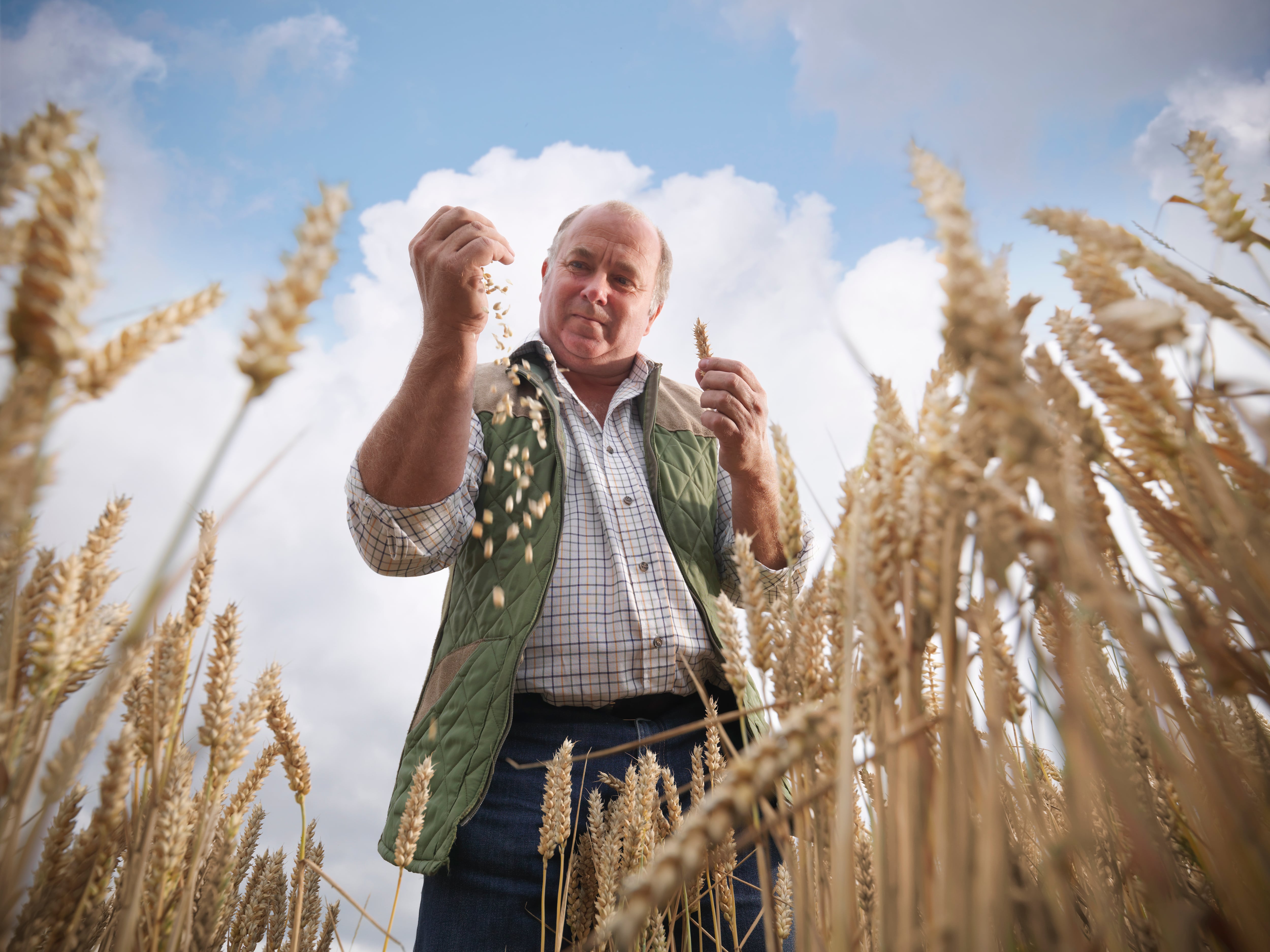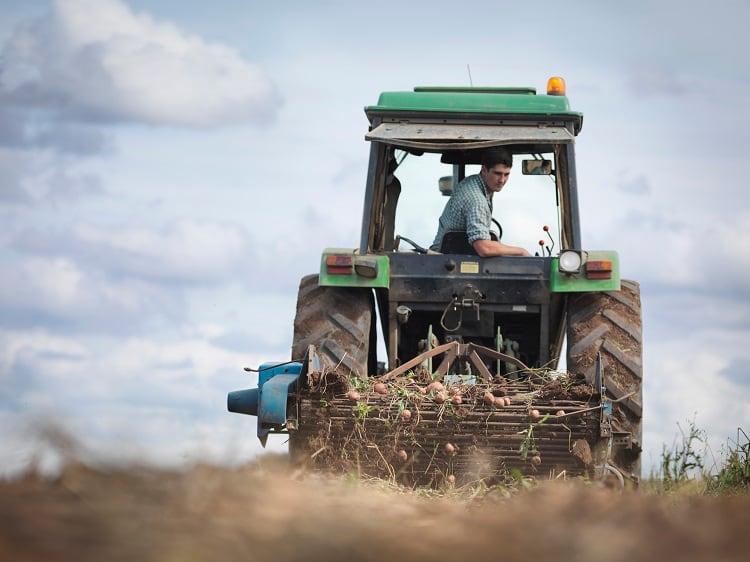The EU’s newly released agri-food strategy, ‘Vision for Agriculture and Food’, has a clear focus on farmers.
A successor to the ‘Farm-to-Fork’ strategy, the new document focuses significantly on farmer protection.
The strategy comes in the wake of the widespread farmer protests that have shaken the bloc within the past few years, and mentions these protests its introduction.
In fact, the Vision, explains Thijs Geijer, sector economist at ING Research, focuses far more on farmers specifically than the Farm-to-Fork strategy, which focused on the whole value chain.
Younger people are increasingly leaving the profession, he says, meaning that the EU is aiming to make it more attractive to new workers to prevent the workforce decreasing.
Simplification of regulations
The complexity of regulations is often seen as one of the key factors making life difficult for farmers. The Vision aims to simplify such regulations in order to assuage some of these issues.
The commission will aim to move away from a ‘one-size fits all’ approach to regulation and to make it more flexible to the individual context of the farmer.
The strategy stressed the need to stress-test and reality check each regulation, and avoid ‘gold-plating’ (when the member state creates a law with added requirements on top of the EU’s minimum standards of compliance).
There must also be a better ‘burden-sharing’ between member states and farmers themselves, it suggested.
The Commission aims to release a simplification package as early as Q2 2025.
One area it will aim to simplify is sustainability regulations. The sustainability regulatory landscape has become ‘fragmented,’ suggests the vision, and must be simplified.
Alongside a simplification of these regulations, a voluntary benchmarking system for on-farm sustainability assessments will be phased in, allowing farmers to compare their sustainability credentials with a set of established criteria. This aims to reduce administrative burdens for farmers.
Change in the structure of CAP payments
According to the vision, payments via the Common Agricultural Policy (CAP) make up roughly 23% of farm income on average in 2020.
CAP payments will not only continue but, according to the Vision, be “simpler and more targeted”.
This means that they will be targeted more extensively towards small and medium-sized farmers, as well as farms which have natural constraints. This is, in part, because the burden of regulatory compliance is greater for those smaller farms with fewer resources.
The commission will consider an increase of the policy of digressively and capping.
In the past, according to ING Research’s Geijer, CAP has funded farmers based on the number of hectares of land under their ownership. Digressivity and capping will mean that this balance will be shifted so that some of the smaller farmers will get more and the amount that larger farms get is limited.
Lastly, farmers will be given greater flexibility in how they design their farming practices tailored to their specific context.
CAP, in the future, will be oriented ‘away from conditions to incentives.’
Embracing biotechnology
Biotechnology has been a key part of food and beverage in recent years, with research into the sector gaining public funding in countries such as the UK.
The Vision strategy also aims to develop the biotechnology sector, pledging to embrace the bioeconomy and to release a ‘Bioeconomy strategy’ at the end of the year.
This means the upscaling of biotechnologies and accelerate the commercialisation of ‘bio-based and circularity solutions’, as well as bridging investment gaps.
Biotechnology can help farmers, the strategy suggests, by enabling them to diversify value streams and valorise farm residues, as well as on a macro level, strengthen the role of primary producers and create new jobs.
‘De-risking’ sustainability
While sustainability is still a part of the strategy, it also aims to ensure the risk posed to farmers is lessened.
According to the vision, farming has a financing gap of €62bn as of 2022. Getting a loan from a bank is often hard for small-scale farmers due to the volatility of weather patterns and commodity prices.
Financing tools such as blended financing, where the commission will use public money to ‘de-risk’ private capital, are pledged as a way to ensure farmers remain protected. Blended finance can also be used to reward farmers for ‘nature-positive’ practices, and bring them together with investors who have a ‘business interest’ in these practices.
The CAP itself will be reformed to strengthen farmers’ resilience to climate shocks. Research will be funded into making crops more resistant to climatic changes, for example.
Changing trade
The document also suggests that bans will be introduced on the imports of certain products that are produced using methods banned in the EU itself. These are known as ‘mirror clauses’.
The aim is, here, to prevent products which have been produced with fewer restrictions, and are therefore cheaper, from undercutting EU farmers.
Further to this, it will examine the impact of free trade agreements with other countries on the EU farmer.
The Commission will also develop a ‘comprehensive plan’ to make the EU less dependent on imports from elsewhere in the world.
In brief
1. Simplification of regulations
The strategy aims to simplify cumbersome regulations, helping to reduce administrative burdens for farmers and to make them more suitable to each farmer's specific contest.
2. Targeted CAP payments
CAP payments will be more targeted, with an increase in the use of digressivity and capping to ensure smaller-scale farmers will get more of the money.
3. Embracing biotechnology
Biotechnology has the potential to diversify value streams and valorise residues, as well as strengthen the role of primary producers and create jobs, the strategy says. A Bioeconomy Strategy will be released by the end of the year.
4. 'De-risking' sustainability
Through the use of initiatives like blended financing, the EU will make sustainability investments less risky for those involved. CAP will be reformed to protect farmers from climate shocks.
5. Changing trade
The EU will be more restrictive on importing produce that is not made up to its standard, a practice called 'mirror clauses.'




